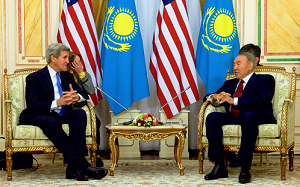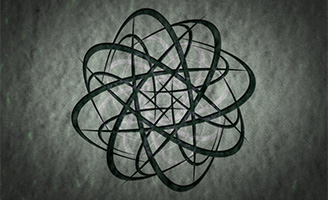Turkmenistan Lifts Its Head
By S. Frederick Starr
December 2, 2022
In recent months Turkmenistan has emerged from its self-imposed shell. Under its new president, Serdar Berdimuhamedov, it has launched a very active, though still cautious, foreign policy. While reaffirming its neutral status, which the UN recognized in 1995, it has intensified its relations with all the global powers and, significantly, with its neighbors as well. Both the U.S. and EU have applauded these initiatives and the new president’s strategic concept that underlies them. However, events unfold, Turkmenistan has decisively lifted its head, and will henceforth be a significant factor in regional and continental affairs and not simply a perplexing outlier.

Central Asia: An Opportunity for the Trump Administration
By Stephen Blank
March 22, 2017, the CACI Analyst
Central Asia has never ranked high on U.S. priorities. That is unlikely to change under the Trump Administration. Yet recent developments in Central Asia, particularly in Uzbekistan, do offer an opportunity to advance U.S. interests through a greater economic-political presence in the region, whilst also countering growing Chinese economic dominance and Russian efforts at military hegemony at a relatively low cost. The two key countries in this possible opportunity for the U.S. are Uzbekistan and Kazakhstan.

Iran, A Nuclear Treaty, and Its Neighbors
By Stephen Blank (04/01/2015 issue of the CACI Analyst)
The 5+1 negotiations with Iran over its nuclear program reached a framework agreement in April 2014. In the U.S., there has been enormous controversy over the alleged outlines of a draft treaty that Iran must either accept or reject by June 2015. If Iran rejects the terms offered in the eventual treaty, the negotiation process is likely to break down. The controversy in the U.S. relates to Iran’s threats against Israel and to a lesser degree its neighbors in the Persian Gulf. But throughout this crisis, much less attention has been devoted to Iran’s relationships with its South Caucasian and Central Asian neighbors.

Afghan Political Settlement Unlikely Before the U.S. Exit
By Mushtaq A. Kaw (09/17/2014 issue of the CACI Analyst)
Alongside the current U.S.-Taliban conflict, the U.S. has unsuccessfully sought reconciliation with the Taliban for a political settlement of the Afghan crisis. Nonetheless, in May 2014, the U.S. swapped five Taliban prisoners for one U.S. soldier to renew the peace process and ensure stability in Afghanistan before the planned exit later this year. However, the prisoner exchange failed to deliver results due to the Taliban’s indifference to dialogue and democratic processes. Consequently, no political settlement for peace in Afghanistan is forthcoming before the U.S. drawdown. A settlement is equally unlikely in its immediate aftermath, which will likely be dominated by rivalries between the Taliban and their competitors.

China and Afghanistan – Time of Decision
By Richard Weitz (09/03/2014 issue of the CACI Analyst)
President Barack Obama’s recent characterization of China as a global free rider certainly applies in Afghanistan. Although China has declined to join the NATO-led International Security Force in Afghanistan or even allow its members to use Chinese territory to supply their forces in Afghanistan, Chinese firms have been benefiting from the massive economic and security contributions of other countries to Afghanistan. But that time is ending and China and the West need to strike a new and more balanced bargain there. Chinese alarm about Afghanistan is rising as U.S. concerns and commitments are declining.






